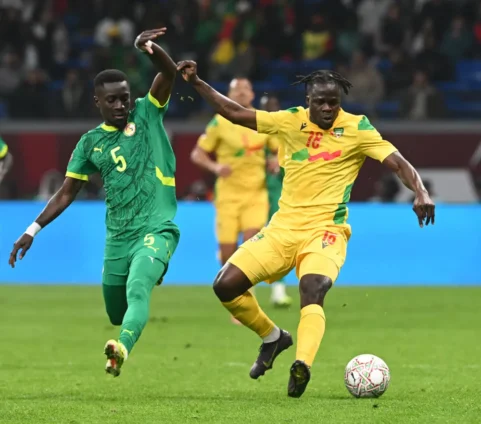Ex-President Kabila Faces Death Sentence in DRC Treason Trial!

A military court in the Democratic Republic of Congo (DRC) has sentenced former president Joseph Kabila to death in absentia on charges of treason and a multitude of other severe crimes. Lieutenant General Joseph Mutombo Katalayi, who presided over the military tribunal in Kinshasa, announced the verdict on Tuesday, convicting Kabila of crimes including treason, crimes against humanity, murder, sexual assault, torture, insurrection, and conspiracy. The judgment also found him guilty of complicity with the M23 anti-government armed group.
Joseph Kabila, 54, who was not present nor represented at the trial, served as president of the DRC from 2001 to 2019, assuming power after the assassination of his father, Laurent-Désiré Kabila. He left the country in 2023 but caused significant disquiet in Kinshasa when he briefly reappeared in May in Goma, an area in the volatile eastern DRC controlled by the M23 rebel group. During his visit, he notably met with local religious leaders in the presence of M23 spokesman Lawrence Kanyuka, further fueling accusations of his alleged support for the rebels.
The trial, which began in absentia in July, followed the lifting of Kabila's parliamentary immunity as a senator for life at the end of May. Military prosecutor General Lucien Rene Likulia had vehemently demanded the death penalty for Kabila, accusing him of plotting to overthrow President Felix Tshisekedi. Further charges included intentional homicide, rape, and torture linked to the M23, with Likulia asserting that Kabila, in coordination with Rwanda, sought to execute a coup against Tshisekedi, potentially with the assistance of M23 leader Corneille Nangaa. Kabila’s political party has vehemently slammed the proceedings as a “political trial,” while Kabila himself had previously denounced the case, calling the courts “an instrument of oppression” and branding Tshisekedi’s government a “dictatorship,” vowing its end.
The M23, described as a Rwanda-backed rebel group, has seized large swathes of territory in the resource-rich eastern DRC, contributing significantly to the region's long-standing instability. While Rwanda denies providing military backing to the M23, UN experts have indicated its army played a “critical” role in the group’s offensive. Despite peace agreements—including a declaration of principle for a permanent ceasefire with the M23 signed in Qatar in July and a peace agreement between Congolese and Rwandan governments in Washington in June—violence persists on the ground. NGOs continue to report abuses against civilians, such as summary executions, gang rapes, and kidnappings, with a United Nations investigation in early September finding that all parties to the conflict could have committed war crimes and crimes against humanity.
The military court handed down the death sentence “without admitting mitigating circumstances to the death penalty” after a nearly five-hour hearing. Although the DRC lifted a moratorium on the death penalty last year, it has not carried out an execution since. Observers suggest the death sentence aims to prevent Kabila from uniting opposition forces within the country. However, despite the capital sentence, Kabila’s arrest by authorities currently appears unlikely given his unknown whereabouts. An appeal against the High Military Court’s verdict is still possible before the Court of Cassation, though only on grounds of procedural irregularities, not to review the case merits. The presence of numerous armed groups and militias in the eastern DRC continues to fuel a climate of near-permanent insecurity, overshadowing the legal proceedings against the former president.
You may also like...
When Sacred Calendars Align: What a Rare Religious Overlap Can Teach Us

As Lent, Ramadan, and the Lunar calendar converge in February 2026, this short piece explores religious tolerance, commu...
Arsenal Under Fire: Arteta Defiantly Rejects 'Bottlers' Label Amid Title Race Nerves!

Mikel Arteta vehemently denies accusations of Arsenal being "bottlers" following a stumble against Wolves, which handed ...
Sensational Transfer Buzz: Casemiro Linked with Messi or Ronaldo Reunion Post-Man Utd Exit!

The latest transfer window sees major shifts as Manchester United's Casemiro draws interest from Inter Miami and Al Nass...
WBD Deal Heats Up: Netflix Co-CEO Fights for Takeover Amid DOJ Approval Claims!

Netflix co-CEO Ted Sarandos is vigorously advocating for the company's $83 billion acquisition of Warner Bros. Discovery...
KPop Demon Hunters' Stars and Songwriters Celebrate Lunar New Year Success!

Brooks Brothers and Gold House celebrated Lunar New Year with a celebrity-filled dinner in Beverly Hills, featuring rema...
Life-Saving Breakthrough: New US-Backed HIV Injection to Reach Thousands in Zimbabwe

The United States is backing a new twice-yearly HIV prevention injection, lenacapavir (LEN), for 271,000 people in Zimba...
OpenAI's Moral Crossroads: Nearly Tipped Off Police About School Shooter Threat Months Ago
ChatGPT-maker OpenAI disclosed it had identified Jesse Van Rootselaar's account for violent activities last year, prior ...
MTN Nigeria's Market Soars: Stock Hits Record High Post $6.2B Deal

MTN Nigeria's shares surged to a record high following MTN Group's $6.2 billion acquisition of IHS Towers. This strategi...


)

